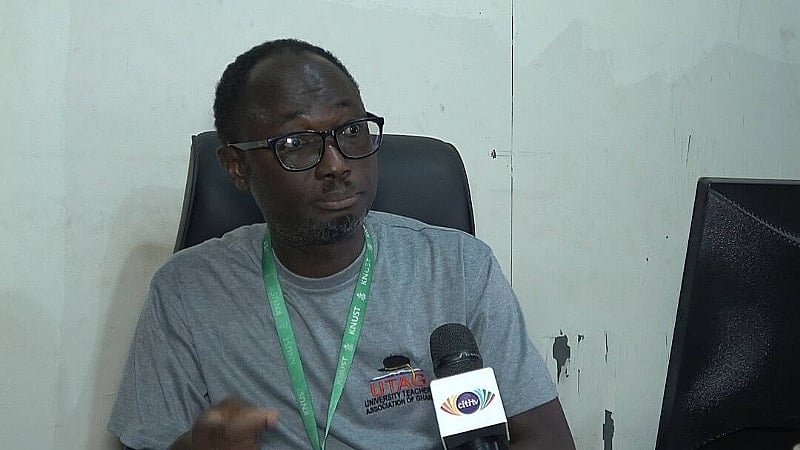Professor Eric Avabare, President of the University Teachers Association of Ghana (UTAG) at the Kwame Nkrumah University of Science and Technology (KNUST), has launched a scathing critique of both the ruling National Democratic Congress (NDC) and the opposition New Patriotic Party (NPP) for their perceived failure to combat illegal mining, or “galamsey,” in Ghana. Avabare’s condemnation, expressed in a strongly worded Facebook post, accuses both parties of not only failing to address the issue but also of actively contributing to its escalation, thereby betraying the trust of the Ghanaian people. He characterizes their actions as a profound dereliction of duty, leading to the widespread environmental degradation and social unrest plaguing the nation.
Avabare’s criticism targets the NPP’s recent expressions of concern about galamsey, deeming them disingenuous and hypocritical. He points to the NPP’s record in power, accusing them of overseeing a period of intensified illegal mining activity. He specifically cites the passage of mining law LI 2462, which he argues facilitated the proliferation of illegal mining operations, and the issuance of a record number of mining licenses. These actions, according to Avabare, directly contradict the NPP’s current posture of concern, revealing their complicity in exacerbating the galamsey problem. He argues that this historical context exposes their current pronouncements as mere political posturing rather than genuine commitment to resolving the crisis.
Furthermore, Avabare extends his condemnation to the NDC, accusing them of equally culpable inaction and ineffective policies. He criticizes former President John Dramani Mahama’s earlier administration for offering excuses instead of implementing concrete solutions to combat galamsey. He recalls Mahama’s remarks about Ghanaians having short memories, highlighting the perceived manipulation of public perception while failing to address the pressing issue. Avabare contends that both parties are equally responsible for the devastating consequences of galamsey, including the destruction of water bodies, forests, and farmlands, and have consistently prioritized political expediency over the well-being of the environment and the citizenry.
The professor’s critique transcends party politics and extends to the Ghanaian populace, whom he accuses of complicity through their continued support of these parties despite their demonstrable failures. He draws a stark comparison with citizens of other African nations, such as Kenya, suggesting that their bolder responses to government failures serve as a reproach to Ghanaian apathy. Avabare contends that Ghanaians’ passive acceptance of the status quo, perhaps fueled by indirect benefits derived from the galamsey trade, perpetuates the cycle of environmental destruction and social instability. This inaction, he argues, makes them as culpable as the political leaders who have failed to address the problem.
He further underscores the human cost of illegal mining, invoking the tragic death of Major Maxwell Mahama, who was lynched by a mob while on duty combating galamsey activities. This incident, Avabare argues, serves as a stark reminder of the violence and lawlessness associated with illegal mining, and the devastating consequences for individuals and communities. By highlighting this tragic event, he aims to emphasize the urgent need for action and to rouse the Ghanaian public from their perceived complacency. He underscores the need for holding both political leaders and citizens accountable for the ongoing environmental and social devastation.
In conclusion, Professor Avabare’s impassioned critique paints a bleak picture of Ghana’s struggle against illegal mining. He accuses both the NPP and the NDC of systemic failure and active complicity in exacerbating the problem, questioning their commitment to addressing the environmental degradation and social consequences of galamsey. Furthermore, he challenges the Ghanaian public’s passive acceptance of the situation, emphasizing the collective responsibility for the ongoing crisis. By highlighting the tragic human cost of galamsey, exemplified by the death of Major Mahama, he issues a stark warning and a call to action, urging both political leaders and citizens to take decisive steps to combat this destructive practice before it irrevocably damages the nation.


